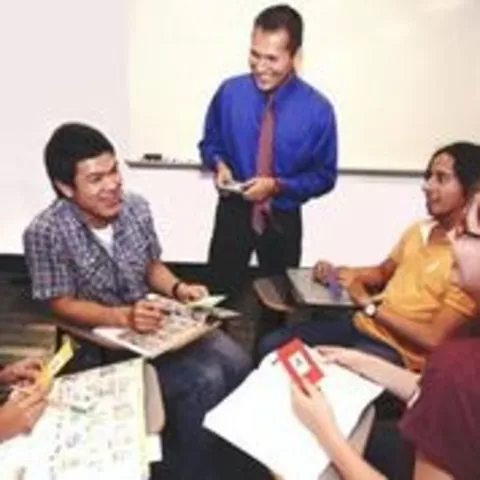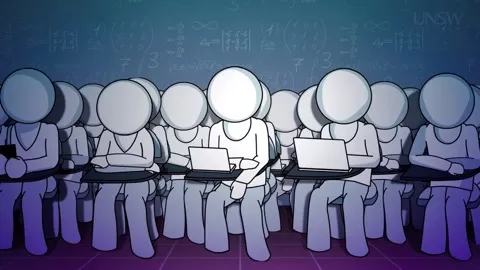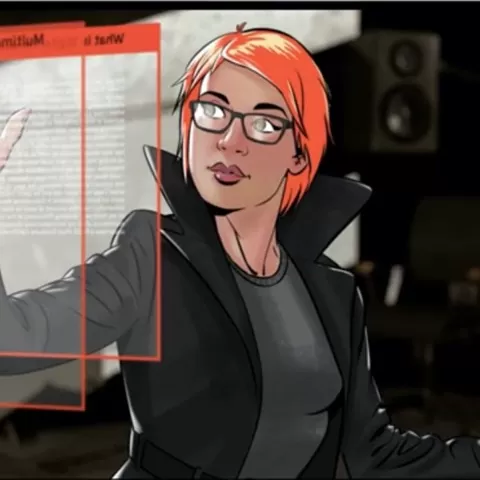For three decades and longer we have heard educators and technologists making a case for the transformative power of technology in learning. However, despite the rhetoric, in many ways and at most institutional sites, education is still relatively untouched by technology. Even when technologies are introduced, the changes sometimes seem insignificant and the results seem disappointing. If the print textbook is replaced by an e-book, do the social relations of knowledge and learning necessarily change at all or for the better? If the pen-and-paper test is mechanized, does this change the nature of our assessment systems? Technology, in other words, need not necessarily bring significant change. Technology might not even represent a step forward in education.
But what might be new? How can we use technologies to innovate in education?
This course explores seven affordances of e-learning ecologies, which open up genuine possibilities for what we call New Learning – transformative, 21st century learning:
1. Ubiquitous Learning
2. Active Knowledge Making
3. Multimodal Meaning
4. Recursive Feedback
5. Collaborative Intelligence
6. Metacognition
7. Differentiated Learning
These affordances, if recognized and harnessed, will prepare learners for success in a world that is increasingly dominated by digital information flows and tools for communication in the workplace, public spaces, and personal life. This course offers a wide variety of examples of learning technologies and technology implementations that, to varying degrees, demonstrate these affordances in action.
——————————–
Recommended Background
——————————–
This course is designed for people interested in the future of education and the “learning society,” including people who may wish to join education as a profession, practicing teachers interested in exploring future directions for a vocation that is currently undergoing transformation, and community and workplace leaders who regard their mission to be in part “educative.”
——————————–
Related Resources
——————————–
This course is based on the following book:
https://www.amazon.com/Learning-Ecologies-Bill-Cope/dp/1138193720
Additional online resources are available here:
https://newlearningonline.com/e-learning
——————————–
Take this Course for Credit at the University of Illinois
——————————–
This course has the same content and anticipates the same level of contribution by students in the e-Learning Ecologies course offered to graduate certificate, masters, and doctoral level students in the Learning Design and Leadership Program in the College of Education at the University of Illinois.
Of course, in the nature of MOOCs many people will just want to view the videos and casually join some of the discussions. Some people say that these limited kinds of participation offer evidence that MOOCs suffer from low retention rates. Far from it – we say that any level of engagement is good engagement.
On the other hand, if you would like to take this course for credit at the University of Illinois, you will find more information about our program here:
https://newlearningonline.com/kalantzis-and-cope/learning-design-and-leadership-program
And you can apply here:
https://education.illinois.edu/epol/programs-degrees/ldl
——————————–
The Learning Design and Leadership Series of MOOCs
——————————–
This course is one of a series of eight MOOCs created by Bill Cope and Mary Kalantzis for the Learning Design and Leadership program at the University of Illinois. If you find this MOOC helpful, please join us in others!
e-Learning Ecologies: Innovative Approaches to Teaching and Learning for the Digital Age
https://www.coursera.org/learn/elearning
New Learning: Principles and Patterns of Pedagogy
https://www.coursera.org/learn/newlearning
Assessment for Learning
https://www.coursera.org/learn/assessmentforlearning
Learning, Knowledge, and Human Development
https://www.coursera.org/learn/learning-knowledge-human-development
Ubiquitous Learning and Instructional Technologies
https://www.coursera.org/learn/ubiquitouslearning
Negotiating Learner Differences: Towards Productive Diversity in Learning
https://www.coursera.org/learn/learnerdifferences
Literacy Teaching and Learning: Aims, Approaches and Pedagogies
https://www.coursera.org/learn/literacy-teaching-learning
Multimodal Literacies: Communication and Learning in the Era of Digital Media
https://www.coursera.org/learn/multimodal-literacies






